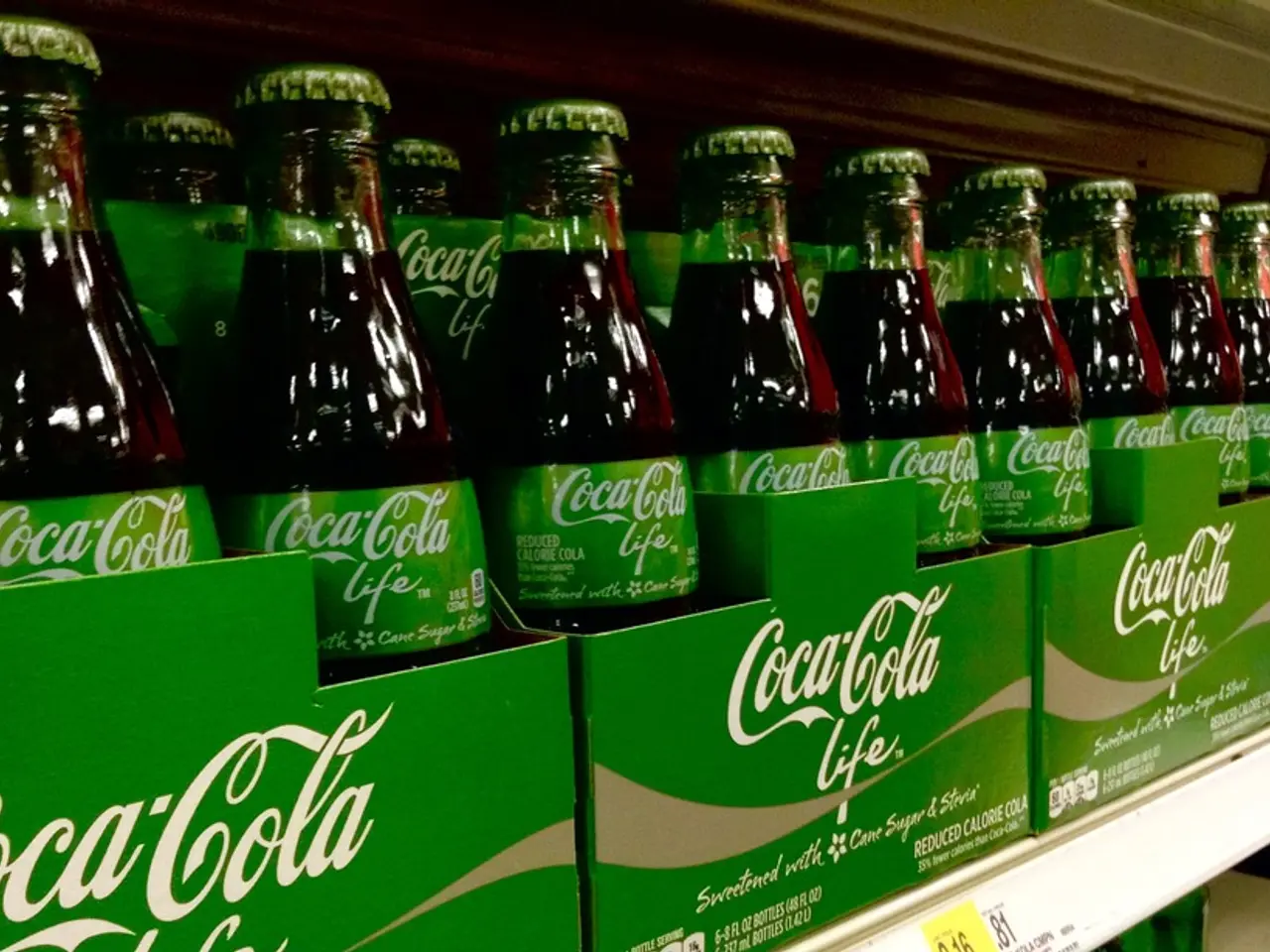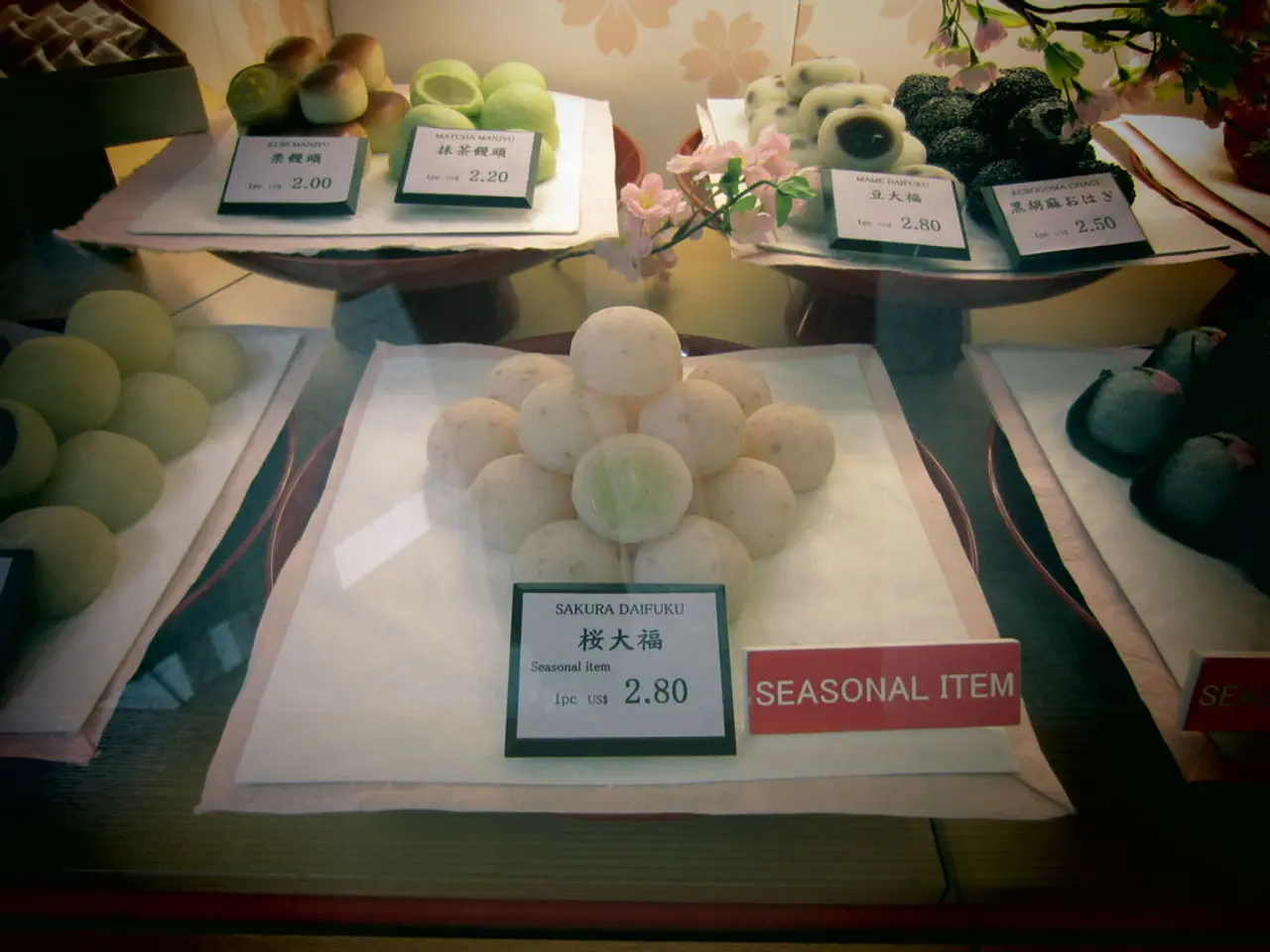Coca-Cola's formula will have a revision, as revealed by Donald Trump - Coca-Cola adjusts its drink formula following announcement by Donald Trump
In a surprising turn of events, former President Donald Trump has announced on his Truth Social platform that he has convinced Coca-Cola to switch from using high-fructose corn syrup (HFCS) to cane sugar in its U.S. products.
According to Trump's statement, Coca-Cola has agreed to the change, which he describes as a significant improvement. However, Coca-Cola has not yet officially confirmed this shift, though they have acknowledged Trump's enthusiasm and hinted at future announcements regarding new product offerings.
### Potential Implications
If Coca-Cola were to switch to cane sugar, it could have far-reaching effects on various sectors.
1. Cost and Production: The use of cane sugar could potentially increase manufacturing costs for Coca-Cola due to higher import tariffs and a potentially shorter shelf life, which might offset some of the benefits of changing sweeteners.
2. Market and Consumer Response: The switch could attract consumers who prefer cane sugar over HFCS, potentially boosting sales. However, it might also alienate consumers accustomed to the current formula.
3. High-Fructose Corn Syrup Industry Impact: A shift by Coca-Cola could significantly impact the HFCS industry, as it would reduce demand for this sweetener. This could lead to economic repercussions for corn farmers and processors who rely on the corn syrup market.
4. Broader Industry Trends: If successful, this change might influence other food and beverage companies to reconsider their sweetener choices, potentially leading to broader market shifts in the use of cane sugar versus HFCS.
It is important to note that the official confirmation of the change and its specific details remain pending from Coca-Cola.
The stock of Archer-Daniels-Midland Company, a major producer of HFCS, fell by approximately six percent in after-hours US trading after Trump's announcement. This drop could be a consequence of Trump's support for Coca-Cola using alternative sweeteners.
High-fructose corn syrup has been criticized as unhealthy by Trump's health minister, Robert F. Kennedy Jr., among others. Despite this, HFCS is cheaper, sweeter, and longer lasting than other types of sugar. In the USA, sometimes Mexican Coca-Cola made with sugar cane is available.
Trump himself drinks diet Coke with artificial sweeteners. However, he wrote on Truth Social that Coca-Cola with sugar from sugar cane is "simply better."
This development, if confirmed, could mark a significant shift in the food and beverage industry, potentially reshaping consumer preferences and market dynamics.
The Commission, given the discussion on Coca-Cola's potential switch to cane sugar, might be asked to consider the financial implications of such a change on businesses related to high-fructose corn syrup. This could prompt a proposal for a directive on the protection of industries from the risks related to fluctuating demand for ionizing products like high-fructose corn syrup.
On the other hand, if Coca-Cola continues its lifestyle-focused approach in its product offerings, it might find inspiration in promoting healthier food-and-drink choices, setting a trend for similar business ventures to follow suit.




